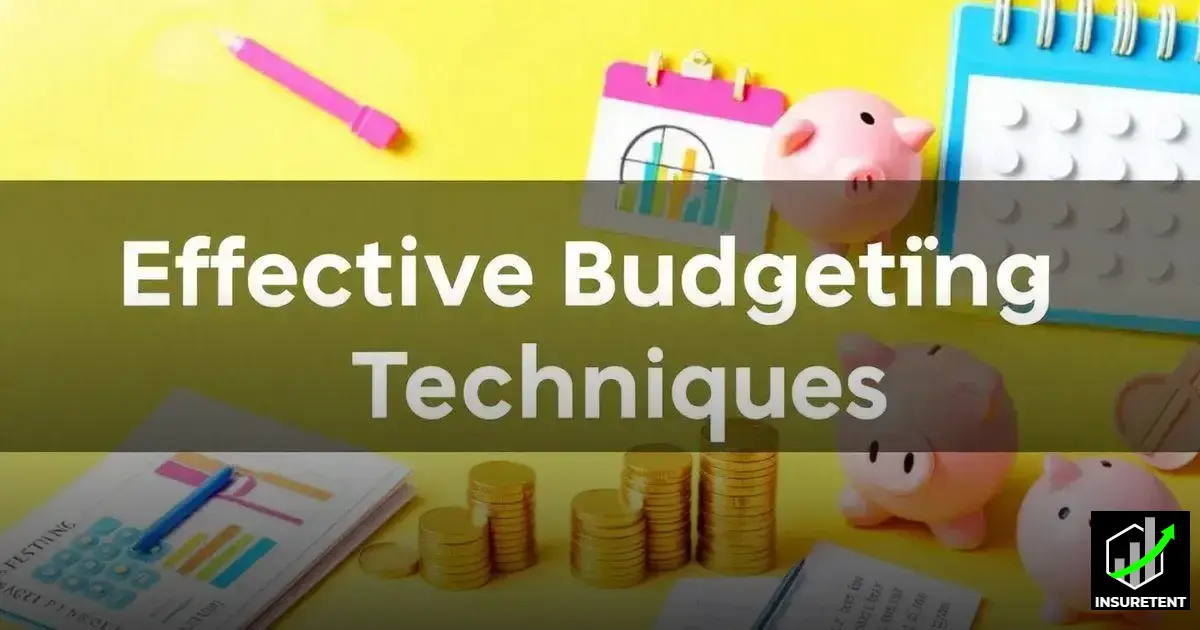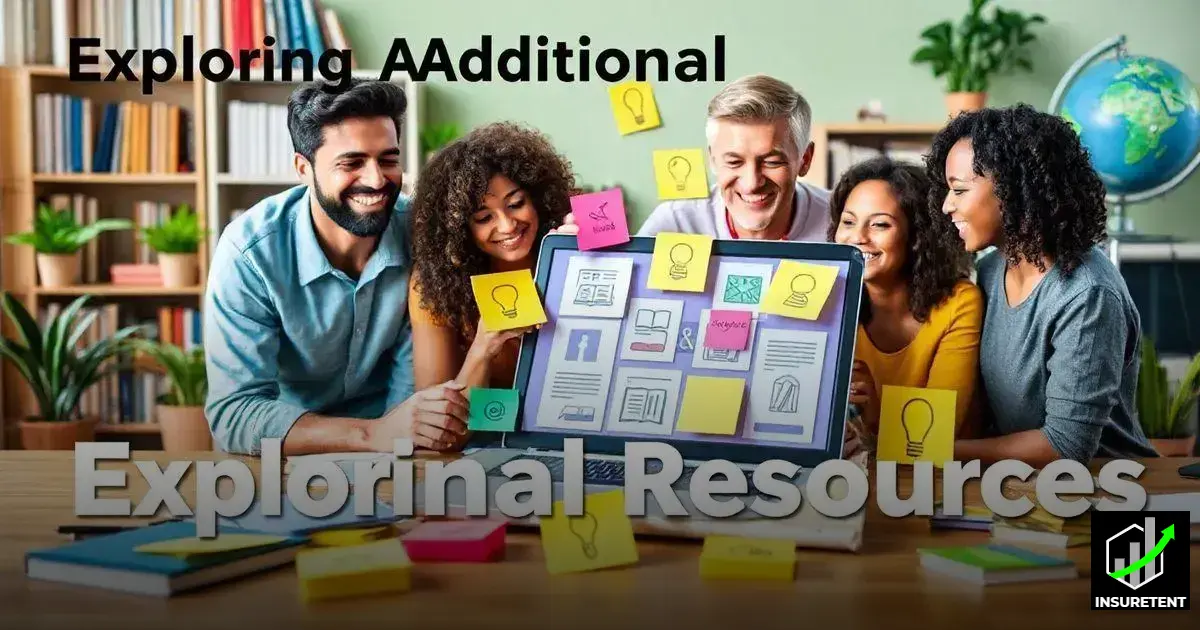Managing debt effectively is crucial for achieving financial stability.
By understanding your debt and implementing a solid strategy, you can pave the way to a brighter financial future.
Let’s embark on this journey to take control of your finances!
Understanding Debt: Types and Implications
Understanding debt is essential for anyone looking to achieve financial stability.
There are various types of debt that individuals may encounter.
Secured debt, like mortgages and car loans, is backed by collateral, while unsecured debt, such as credit card debt and personal loans, does not have collateral.
Each type adversely affects your financial well-being in different ways.
It is also important to recognise the implications of debt.
High levels of debt can lead to considerable stress, affect your credit score, and limit your financial options.
Understanding these implications can motivate you to take proactive steps towards managing your debt effectively.
Many people attribute their debt issues to unforeseen circumstances, while others accumulate debt through lifestyle choices.
Knowledge is power; underestimating the potential impact of debt can trap individuals in a cycle of borrowing.
By staying informed about your financial situation, you can make smarter choices about how to handle your money.
Assessing Your Financial Situation

Assessing your financial situation is a critical first step in managing debt effectively.
Begin by creating a comprehensive list of all your debts, including credit cards, loans, and mortgages.
This list should also include the interest rates, monthly payments, and due dates.
Understanding the full scope of your financial obligations can help you prioritise your payments and make informed decisions.
Next, take stock of your income and expenses.
Document your monthly earnings and create a budget that outlines your essential expenses such as rent, utilities, and groceries.
By recognising where your money goes, you can identify areas to cut back on non-essential spending.
Once you have a clear picture of your finances, consider your credit score as well.
A good credit score can lead to better loan terms, while a poor score can limit your options.
Regularly check your credit report for errors and take steps to improve your score if necessary.
Finally, reflect on your financial goals. Are you looking to be debt-free, save for a significant purchase, or prepare for retirement?
Setting tangible goals can give you a roadmap towards achieving financial independence.
Creating a Debt Management Plan
Creating a debt management plan is an essential step for anyone looking to manage their finances effectively.
Start by setting clear financial goals, such as paying off a specific debt within a certain timeframe or reducing overall debt levels.
Consider using the snowball method, which focuses on paying off the smallest debts first.
Alternatively, try the avalanche method, which targets high-interest debts to save on interest payments.
Next, prioritise your debts by interest rates and payment amounts.
This will help you allocate your funds more efficiently.
Make sure to review your monthly budget to identify areas where you can cut back on spending, allowing you to allocate more towards your debt repayments.
Every bit you save will contribute to your debt reduction.
It is also important to maintain communication with your creditors.
Many times, they are willing to negotiate lower payments or interest rates, especially if you explain your situation.
You can request a debt consolidation loan to combine multiple debts into one payment, which can simplify your finances and potentially lower your interest rates.
Furthermore, ensure you track your progress regularly.
Monitoring your progress will keep you motivated and reveal how much closer you are to your goals.
Celebrating small victories along the way can boost your morale.
Effective Budgeting Techniques

Effective budgeting techniques are vital for managing debt and achieving financial goals.
Start by tracking your income and expenses over a month to see where your money goes.
This clear picture helps you recognise spending habits and find areas to cut back.
One popular method is the 50/30/20 rule.
This technique suggests allocating 50% of your income to needs, 30% to wants, and 20% to savings or debt repayment.
Adjust these figures to fit your situation.
Another technique is creating a zero-based budget, where every rand is allocated to a specific category, allowing you to control your finances tightly.
This means your income minus all your expenses equals zero at the end of the month.
Utilising budgeting apps can also make tracking simpler.
Apps often offer visual tools that highlight where your money goes, helping you stay on course.
Lastly, review your budget regularly.
Changes in your financial situation may require adjustments in your budgeting approach, ensuring you remain effective in managing your debt.
Negotiating with Creditors
Negotiating with creditors can be a vital step in managing your debt effectively.
First, gather all relevant information about your debts, including account numbers, balances, and payment histories.
Having this data on hand will strengthen your position during negotiations.
Start by contacting each creditor individually. Be polite and professional as you explain your situation honestly.
Let them know you are committed to repaying your debt but are facing difficulties.
Most creditors appreciate transparency and are often willing to work with you.
One common request is to lower your interest rate.
If you have a good payment history, you may successfully negotiate for a reduced rate, which can save you money in the long run.
Additionally, consider asking for a payment plan that better suits your current financial situation, allowing smaller, more manageable payments.
In some cases, you might negotiate a settlement where the creditor agrees to accept a lesser amount than what you owe.
This typically requires you to make a lump-sum payment and should be treated as a last resort.
Remember that settling a debt may affect your credit score.
Finally, always get any agreements in writing.
Documenting what you have negotiated ensures both you and the creditor are on the same page, preventing any future misunderstandings.
Exploring Additional Resources

Exploring additional resources can greatly enhance your ability to manage debt effectively.
Many people are unaware of the various support systems available to help them navigate financial challenges.
Start by investigating community resources, such as local non-profit organisations that offer free financial counselling services.
These professionals can provide valuable advice tailored to your situation.
Additionally, consider leveraging online resources.
Numerous websites offer valuable tools, such as bills tracking apps and debt calculators, which help you visualise your finances and understand your debts better.
Many of these tools can assist you with creating a budget and managing payments more effectively.
Furthermore, explore educational materials that can help improve your financial literacy.
Workshops, webinars, and online courses often cover essential topics like debt management, credit scores, and budgeting techniques.
Increasing your knowledge through these resources can empower you to make informed financial decisions.
Another practical resource to consider is government programs designed to assist individuals in debt.
Identify whether you qualify for any grants or assistance that can alleviate your financial burden.
Stay connected with local government offices that provide information on this matter.
Staying Motivated and On Track
Set small, achievable goals: Break down your debt into smaller milestones for a sense of accomplishment.
Create a visual representation of progress: Use charts or apps to track your debt pay-off journey.
Share your journey for support: Discuss your goals with friends or family for accountability and motivation.
Educate yourself on personal finance: Read books and attend workshops to inspire confidence and better decisions.
Embrace setbacks as learning opportunities: Reflect on challenges and adjust your plan instead of feeling discouraged.
In Conclusion
Managing debt effectively is a journey that requires dedication and the right strategies.
By understanding your financial situation, creating a solid debt management plan, and tapping into various resources, you can take control of your finances.
Remember, it is crucial to stay motivated and assess your progress regularly.
Effective budgeting, negotiating with creditors, and exploring additional assistance can also play significant roles in achieving financial stability.
Every step taken towards reducing debt, no matter how small, brings you closer to financial freedom.
Stay committed to your goals, and with time and perseverance, a brighter financial future is within reach.
Frequently Asked Questions about Managing Debt
What is the first step in managing my debt?
The first step is to assess your financial situation and understand your total debt, including balances and interest rates.
How can I create a debt management plan?
You can create a debt management plan by setting clear financial goals, prioritising your debts, and establishing a payment schedule.
What budgeting techniques can help with debt?
Techniques like the 50/30/20 rule or zero-based budgeting can help you allocate your income effectively to manage debt.
How can I negotiate with creditors?
Contact your creditors directly, explain your situation, and request lower interest rates or alternative payment plans.
What resources are available for debt management?
There are community resources, online tools, and educational materials that can assist you in managing your debt effectively.
How do I stay motivated while managing debt?
Set small goals, track your progress, and share your journey with others for support and accountability.
